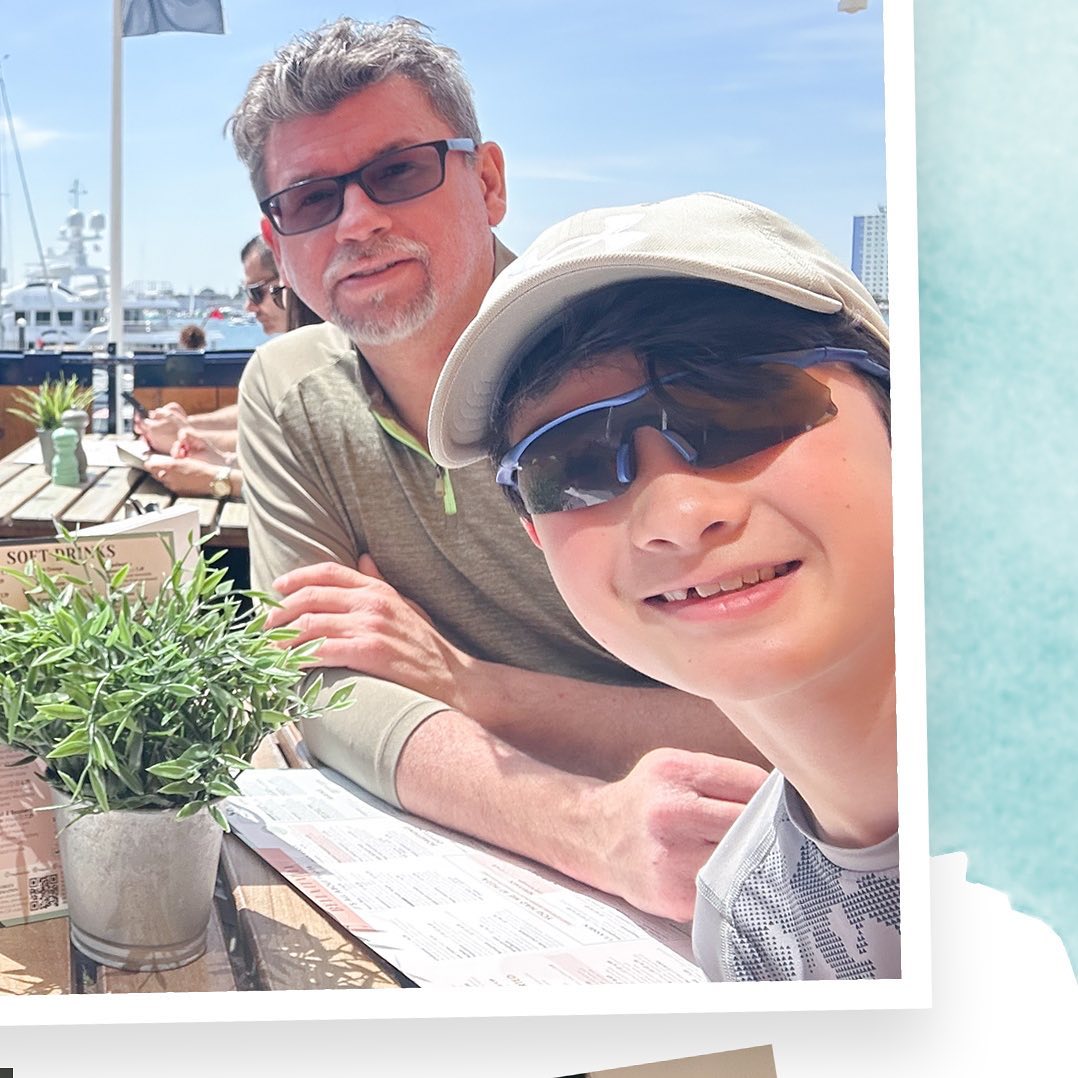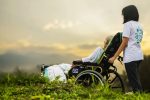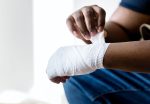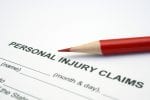How family members can help after personal injury?
When a family member suffers a personal injury, the initial shock and concern can be overwhelming. However, in the days and weeks that follow, the support provided by loved ones becomes an integral part of the healing process. It’s not just about the physical recovery—the emotional and psychological support can make a monumental difference. In the aftermath of injury, the collective strength of a family can build a nurturing environment conducive to recovery and adaptation. Let’s explore some of how family members can stand as pillars of support and significantly aid in the journey toward healing after a personal injury.

Legal help
Seeking legal assistance is critical in navigating a personal injury’s aftermath. Family members can be instrumental in researching and contacting an experienced local personal injury attorney. Whether it’s personal injury attorneys in Columbia, SC, or another location, family members are often in the best position to help find a lawyer who can provide expert legal advice. They can also assist with gathering and organising important documents and evidence related to the injury, making sure nothing is overlooked.
Assist with daily tasks and activities
Assisting with daily tasks and activities can significantly ease the burden on someone dealing with the repercussions of a personal injury. Family members who step in to help with routine chores—such as cooking, cleaning, shopping, and running errands—enable the injured person to focus on recovery without the added stress of household obligations. Moreover, they can ensure that the home environment is safe and accessible to prevent further injury. Support with these practical matters provides physical relief and conveys a deep sense of care and solidarity that can be especially comforting during a difficult time.
Offer transportation and accompaniment to medical appointments
Another pivotal role that family members can play is providing transportation to medical appointments. Managing to get to and from clinics or hospitals can be a significant challenge when someone is injured. Offering rides ensures that the individual does not miss vital check-ups and treatments.
Accompanying a loved one to these appointments also has the added benefit of moral support. A family member present during doctor visits can help by taking notes, asking questions, and helping to retain and understand medical advice and instructions given by healthcare professionals. This ensures that recovery is on track and that the injured party receives the comprehensive care needed to heal.
Help manage finances
The financial implications of a personal injury can be significant and stressful. Family members can help by managing the injured person’s finances, which may include organising bills, keeping track of medical expenses, and negotiating with creditors for more manageable payment plans. They can also assist in exploring insurance benefits, setting up a budget that accounts for reduced income during the recovery period, and seeking financial assistance or grants if necessary. This financial oversight provides not only practical help but also peace of mind, allowing the injured party to concentrate on rehabilitation without the added anxiety of financial strain.
Create a safe and supportive environment at home
Creating a safe and supportive home environment is essential for someone recovering from a personal injury. Family members can contribute by rearranging living spaces to accommodate mobility aids, removing tripping hazards, and installing grab bars in crucial areas like the bathroom to prevent falls.
Ensuring adequate rest and a stress-free atmosphere is equally crucial; this might involve setting up a comfortable rest area, reducing noise, and managing visitors. Emotional support is also a key aspect of recovery, so family members need to provide empathy, listen to concerns, and encourage positive thinking. This nurturing atmosphere not only safeguards against physical setbacks but also bolsters the injured person’s mental wellness, aiding in a more holistic recovery.

Coordinate care and communication among healthcare providers
An often overlooked yet vital role family members can play is in coordinating care and communication between various healthcare providers. With multiple appointments, specialists, and treatments to manage, having a designated family member to handle scheduling, record-keeping, and information transfer can be invaluable.
This coordinator ensures that all healthcare professionals involved are updated on the patient’s condition and treatment progress, minimising the risk of medical errors and redundant tests. By serving as the communication hub, this family member helps maintain continuity of care, which is instrumental in achieving optimal recovery outcomes for their loved one.
Facilitate rehabilitation and recovery exercises
Family members can play an integral part in the rehabilitation process by facilitating recovery exercises prescribed by healthcare professionals. Being present for physical therapy sessions or assisting with prescribed exercises at home can help ensure that the injured family member is performing the exercises correctly and safely. Encouragement and motivation from loved ones are often crucial in maintaining a consistent rehabilitation routine. Furthermore, family members can help track progress, celebrate milestones, and provide feedback to therapists, which can be critical for adjusting the rehabilitation plan as needed to optimise recovery.
Research treatment pptions and specialists
By engaging in the research of various treatment options and specialists, family members can greatly contribute to a more personalised and effective recovery plan. With the vast array of medical information available, loved ones can assist by compiling data on the latest treatments, rehabilitation techniques, and alternative therapies that might benefit the injured individual.
Researching and identifying specialists—whether it’s an orthopaedic surgeon, a neurologist, or a physical therapist—ensures the injured family member has access to care providers with the expertise suited to their specific injuries. A supportive family member can help make informed decisions by reading reviews, checking credentials, and even setting up consultations to find the best possible match for the patient’s needs.
Moreover, family advocates can stay abreast of new developments in medical technology and treatments that can speed up the healing process or improve the quality of rehabilitation. This proactive approach to healthcare research can be invaluable, empowering the injured person with options and hope for a successful recovery.
In conclusion, family members can make a significant impact on the recovery journey of a loved one who has suffered a personal injury. From providing practical assistance to offering emotional support, assisting with legal and financial matters, and coordinating care and communication, their role is vital in ensuring optimal recovery outcomes. With the collective strength of a supportive family unit, those dealing with personal injuries can have the best chance at healing and adapting to a new normal.
![[AD] We’re a cricket-mad family, so we’re buzzing that @thehundred is back this August! 🏏🔥
To get ready, M tried out the official FREE Activity Pack — and it’s brilliant! 🙌
Packed with fun games, creative challenges and sporty tasks, it’s perfect for getting kids hyped whether you’re at home or on the go.
👉Download yours now (link in bio)
@londonspirit @ovalinvincibles #EveryMomentCounts #TheHundred
#EnglandCricket #CricketFamily #TheHundredCricket #LondonBloggers #Cricket #CricketIsLife #kidsfun](https://suburban-mum.com/wp-content/uploads/2022/11/505472555_18531279601016840_7092520074819907569_n-180x320.jpg)



![[AD - Press visit]
We enjoyed the glorious sunshine this weekend with a trip to Brighton. We went on the @brightoni360official which is right by the sea front.
The i360 pod take a slow journey up, allowing you to take in views across Brighton and the South Downs 450ft above ground. There’s a bar inside with drinks and snacks available to purchase and the experience lasts 25 minutes.
Afterwards, we headed to the open air roller rink for a roller skating session!
The roller rink is:
⭐ Suitable for over 5s
⭐ £6.50 if you have your own skates or £9.50 if you need to hire them
⭐ 45 minutes per session
Full details to visit the i360 + skating
📍 Brighton i360, Lower Kings Road, Brighton BN1 2LN
🚗 Parking nearby (we parked in the Regency Square Car park)
🎟️ Prices start from £25.40 for an adult and £16.90 for a child
🕐 Opening hours are currently Sun-Fri 10.30am-18.30pm and until 19.30pm on Saturdays
☕️ Bar inside the i360, cafe and gift shop
Book tickets here:
https://tickets.brightoni360.co.uk/tickets/?_ga=2.195305772.1869001490.1689671753-1757164059.1689671753/#events?eventid=157](https://suburban-mum.com/wp-content/uploads/2015/04/417980235_313576471048632_3682382982231216432_n.jpg)

![[AD] ***Summer of fun at Barracudas Activity Camps!****
There is plenty for kids to do at @barracudas_activity_day_camps
From Tennis, Archery, Swimming, Motor Sports and more you can be sure that there will be something for kids aged 4.5-14. ⚽🏈🥅🎾🏓🏎️🏹🏊♂️🏉
You can book on a day by day basis - so it can fit in with any other days out/activities you have planned and there are early drop off and late pickup options available. Barracudas are also Ofsted registered so you can use your Childcare Vouchers too.
⭐⭐⭐Get £20 off a week or £4 off a day using my discount code: MARIA20⭐⭐⭐
#BarracudasActivityDayCamp #BarracudasActivityCamp #BarracudaAmbassadors #SummerHolidays #SchoolHolidays #Summer2023 #SummerCamp #DayCare #Camp #KidsCamp #surreymummy #surreymums #SummerOfFun #ActivityCamps #HolidayCamps #Childcare #SchoolHolidays #schoolholidaycamps](https://suburban-mum.com/wp-content/uploads/2024/07/353583570_625625966167953_545896259645102575_n.jpg)



![[AD] We have some super exciting news...we have been chosen to be Laser Quest Ambassadors, and the boys are over the moon!
We are really lucky that our local Laser Quest (@laserquestkingston) is just around the corner from us. It means we can pop in of a weekend or anytime during the school holidays, and with summer just around the corner, I know Laser Quest will be one of our go-to places for some family fun.
As well as games of Laser Quest, there are also VR experiences and arcade amusements too. To find out a bit more about how Laser Quest works, you can read my blog post: https://www.suburban-mum.com/laser-quest-kingston/ (clickable link in bio)
Don't forget to keep an eye out for our Laser Quest posts - I'm going to be giving away two family passes to use at Laserquest Kingston!
If you can't wait and want to head down to Laser Quest to try it out, use the code SUMMER30 for 30% off your booking. The code is valid from now until the end of August 2023 and can be used on Laser Quest games and birthday party bookings.
#LaserquestAmbassador #Laserquest #LaserquestKingston #ActivitiesForKids #FamilyFun #DaysOutWithKids #Lasertag #LaserquestVR #Kingston #ThingsToDoInKingston #SurreyFamilyDaysOut #ThingsToDoWithKids #RainyDayFun #SurreyMummy #SurreyLife #LifeWithKids #LifeWithBoys #familyfunday](https://suburban-mum.com/wp-content/uploads/2015/04/353230107_797358078406942_2405522556733455165_n.jpg)

![[AD] The sun has finally made an appearance and the boys have been making the most of it by spending it
in the garden.
They’re go-to is always football and they’ve been trying to improve their aim and accuracy with the new Messi Foldable Footlball goal from the #MessiTrainingSystem range.
I love the fact the goal is foldable, making it easy to store away when not in use. It is also lightweight so you can effortlessly pack it up and take it to the park or to a friend’s house.
The Messi Foldable Football Goal retails at £36 and can be purchased from @argos
You can read my full review here: https://www.suburban-mum.com/messi-foldable-football-goal/
#TrainLikeMessi #FoldableFootballGoal #FootballSkills #OutdoorFun #LionelMessi #LeoMessi #FootballAtHome #OutdoorKids #JustGetOutside #OutdoorsAndFree #ScreenFreeKids #WhateverTheWeatherKids @flair_gp](https://suburban-mum.com/wp-content/uploads/2024/07/341194882_615024710178056_41977149395989448_n.jpg)

![[AD] We are absolutely thrilled to announce that we are Barracuda Ambassadors again this year.
With Easter just around the corner, the boys were sent the @barracudas_activity_day_camps new camp kit in preparation for the school holidays.
There’s a wide range of activities for kids aged 4.5 - 14 including Tennis, Archery, Basketball, Arts & Crafts and more.
If you like the sound of Barracudas, find out more over on their website. You can also save £20 a week or £4 a day, using my discount code: MARIA20](https://suburban-mum.com/wp-content/uploads/2015/04/336812306_765234558514317_685553691647241974_n.jpg)


![[AD - Gifted]
Last weekend we were invited to try out @tsarettaspice’s new Bottomless Brunch menu and I can tell you it was thumbs up all round!
There’s a good choice tapas on offer from Punjabi fish fingers, Indo Chinese Chicken to Spiced Lamb Scotch Eggs and Manchurian Cauliflower (which was amazing!)
If you’re local to Twickenham and fancy giving them a try here’s are the details.
Tsaretta Spice Bottomless Brunch
⭐️£37.50 per head for bottomless Prosecco or cocktail of the day
⭐️£55 per head for bottomless Champagne
⭐️ Food included: 4 tapas selections and dessert or 2 tapas selections, a pav or naanwich and dessert
⭐️ Non-alcohol brunch is also available
Tsaretta Spice
55 Church Street
Twickenham
TW1 3NR
You can also read our full review over on the blog (link in bio)](https://suburban-mum.com/wp-content/uploads/2015/04/334565436_5960402314015030_663031098700829518_n.jpg)
![[AD] What does family look like for you?
I am fortunate to be surrounded by strong, powerful women in the form of my mum, sister and mother-in-law (along with many others). With Mother’s Day just around the corner, @BootsUK want to celebrate all the different mums and mother figures we are lucky enough to have in our lives. They have a huge range of Mother’s Day gifts to choose from so we can show them how much they mean to us. (swipe to take a look at some of my choices)
If you want to express love and appreciation for the mother figure(s) in your life, head to Boots.com to find the ideal gift. They have a whole host of gifts, so you can be sure to find something to suit all tastes. Celebrate the #LoveForAllMums this Mother’s Day with Boots.
](https://suburban-mum.com/wp-content/uploads/2024/07/334276459_136658625736352_6403224988403337253_n.jpg)




